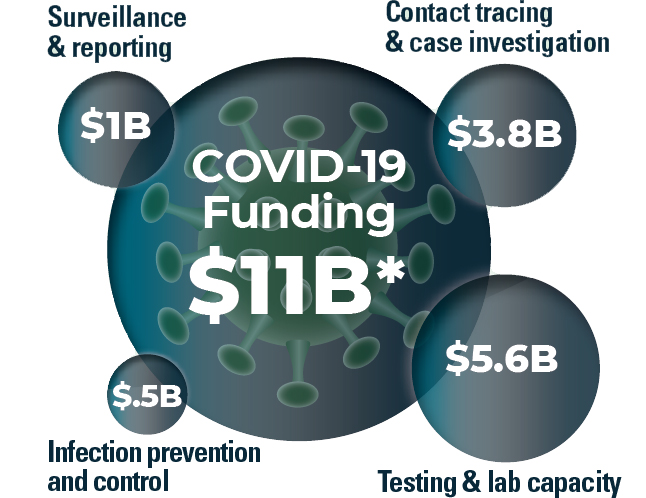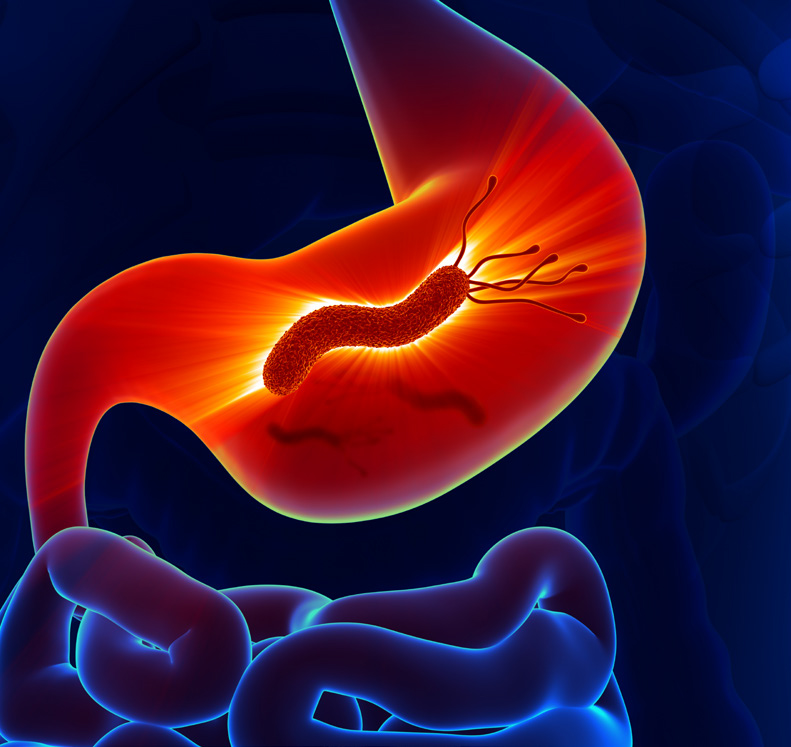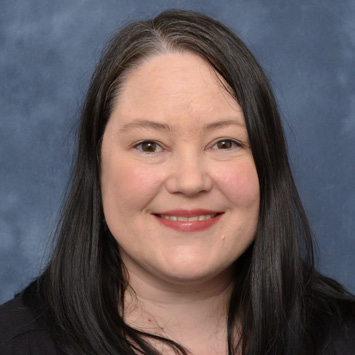Equipping states to fight disease
Delivering $11 billion in COVID-19 funding to health departments

Funding categories/amounts as of September 30, 2020
NCEZID’s Epidemiology and Laboratory Capacity for Prevention and Control of Emerging Infectious Diseases (ELC) Cooperative Agreement has awarded $11 billion to support COVID-19 response efforts in 64 state, local, and territorial health departments. Funding came from the Paycheck Protection Program and Healthcare Enhancement Act [PDF – 12 pages] (PPPHEA); Coronavirus Aid, Relief, and Economic Security (CARES) Act [PDF – 335 pages]; and Coronavirus Preparedness and Response Supplemental Appropriations Act, 2020 [PDF – 13 pages].
This is the largest single award any one CDC program has ever dispersed. The funds assist health departments by supporting enhanced testing for COVID-19; surveillance and reporting; contact tracing and case investigations; infection prevention and control measures; infectious disease preparedness capacity; and other life-saving activities. Using COVID-19 resources, ELC funded more than 15,000 full- and part-time state and local public health professionals. These positions include epidemiologists, laboratorians, informaticians, contact tracers, case investigators, and other positions critical to the nation’s response to COVID-19. Nearly half of the funds ($5B) are dedicated to supporting local health departments. ELC team members worked at a record pace to make the funding available, supporting urgent COVID-19 response efforts while maintaining core infectious disease preparedness programs.
Protecting Alaska Native people from aggressive cancer-causing bacteria

Rates of gastric cancer associated with Helicobacter pylori infection are almost four times higher among Alaska Native people.
In 2020, CDC’s Arctic Investigations Program (AIP) worked with tribal health partners and used genetic sequencing data to help understand why rates of gastric cancer associated with Helicobacter pylori infection are almost four times higher, and why the disease is more aggressive among Alaska Native people compared with other populations. Located on the Alaska Native Medical Center campus in Anchorage, CDC’s lab uses advanced diagnostic technologies to enhance surveillance and identify genetic markers that can help inform screening and treatment options for H. pylori. These efforts support AIP’s mission to prevent infectious diseases in people of the Arctic and sub-Arctic, especially those that disproportionately harm Alaska Native and other northern indigenous peoples.

On getting support to states
“Being able to scale up easily and get billions of dollars out to our state and local public health partners has been a uniquely rewarding experience.”
Angelica O’Connor, ELC Program Coordinator, NCEZID
